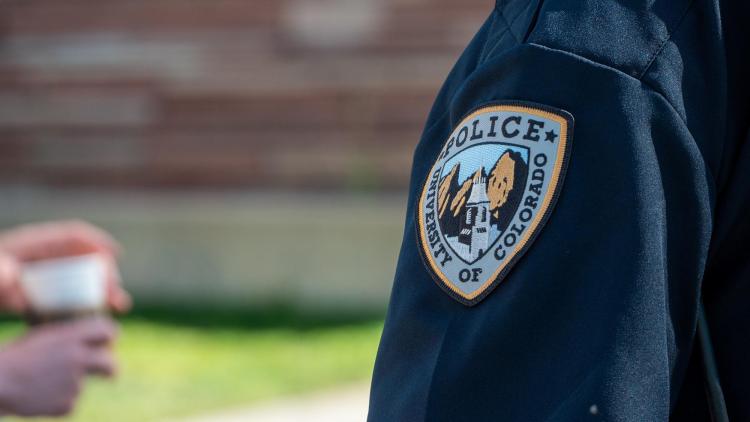Learn about CU Boulder Alerts, spring test March 15
As part of our continuous assessment of our emergency notification protocols and procedures, campus officials will test the CU Boulder Alerts system between noon and 1 p.m. on Tuesday, March 15. Here is some important information on campus safety and crime prevention.
 CU Boulder Alerts
CU Boulder Alerts

CU Boulder issues emergency notifications to the campus community when there is a confirmed immediate threat to the safety of those on our campus. Such threats may include a natural disaster, an active harmer, severe weather or other time-sensitive life safety concerns. CU Boulder Alerts can also be used in the event of campus closures, delayed starts or other on-campus emergencies.
Students and employees are automatically signed up to receive email alerts when emergencies occur on campus, including closures and extreme weather. Students are also asked to add a mobile number during course registration.
Students should consult the student alerts step-by-step guide to be sure their contact information is up to date. Employees can manage their mobile alerts number and updates as needed in MyCUInfo.
Other safety notifications
The university also issues timely warnings and emergency notifications in accordance with the Jeanne Clery Disclosure of Campus Security Policy and Campus Crime Statistics Act (Clery Act).
For non-immediate threats or other concerns that may impact the daily lives of our university community, we also regularly distribute proactive educational materials via campus newsletters and social media.
Alerts system test
As part of our continuous assessment of our emergency notification protocols and procedures, campus officials will test the CU Boulder Alerts system between noon and 1 p.m. on Tuesday, March 15.
The biannual testing, required by a federal law known as the Clery Act, involves checking the university’s systems for sending text messages, emails, social media posts, computer desktop alerts and website announcements. This testing helps ensure we’re staying up-to-date with best practices and maintaining readiness to respond in case of emergencies.
What about off-campus emergencies?
For campus community members who live off campus or hang out off campus frequently, it is natural to want to know what is happening and how to stay safe.
In unforeseen and emergent situations off campus, the campus works closely with local, state and federal law enforcement or fire department partners. While information proliferates quickly on social media, CU Boulder has a duty to disseminate only factual and verified information in concert with public safety entities.
While the university often does attempt to provide updates during evolving emergencies off campus that could affect our community, local emergency response agencies, such as city police or fire departments, which serve that location off campus, will always be the best source of information. In many cases, CU Boulder may not have rapid access to the most up-to-date information for an off-campus emergency.
We continuously evaluate how we communicate about off-campus incidents through discussion with our community partners while ensuring we remain compliant with the federal Clery Act.
The city of Boulder and Boulder County emergency responders distribute emergency alerts via a system called Everbridge. Campus community members who live in the area are strongly encouraged to sign up.
The Boulder Police Department and the Boulder Fire Department also maintain social media channels for non-emergency information.
The university continues to partner with the city to improve communication to residents who are part of the CU community.
Local news media are also a great resource, especially in situations in which rumors are spreading on social media.
CU Boulder Police updates
The CU Boulder Police Department (CUPD) frequently shares information regarding campus safety trends and initiatives via social media. Families and students are encouraged to follow CUPD on Facebook, Twitter and Instagram.
Bike and laptop registration
Bikes and laptops are popular theft items on campus. Registration of these items helps police identify property if these items are stolen. Bike registration also comes with free visits to bike stations on campus for maintenance and repairs.
Register your bike and register your laptop, if you haven’t already. Learn more about preventing bike theft.


